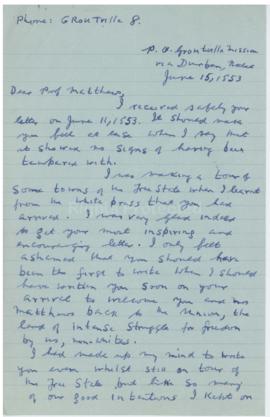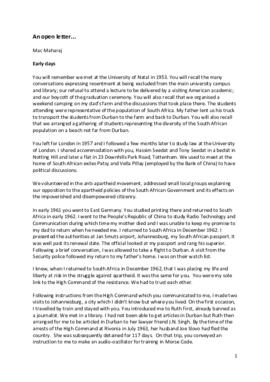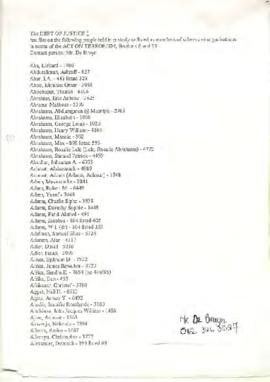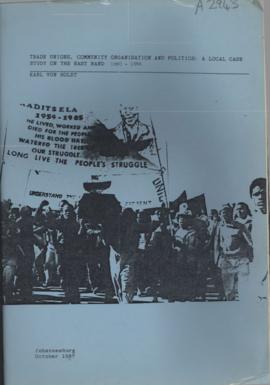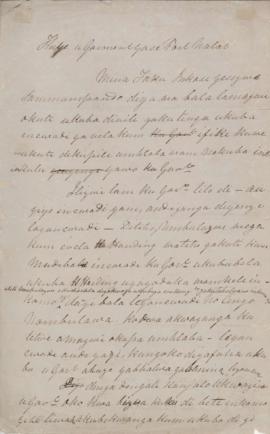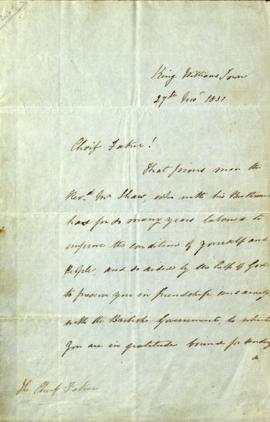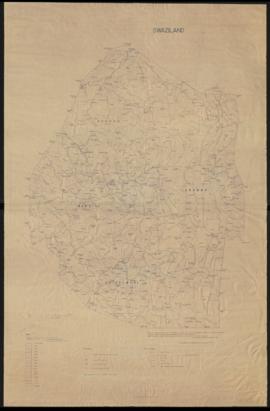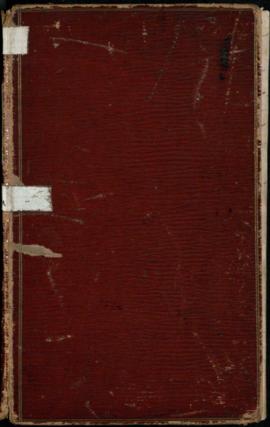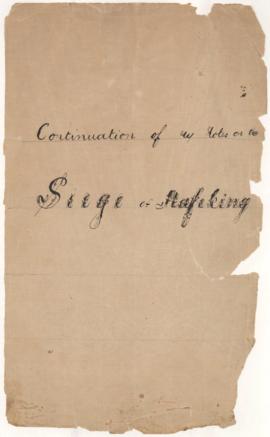Handwritten diary of Solomon Tshekisho Plaatje (1876-1932), interpreter, journalist, author and politician. The diary was written during the Siege of Mafeking, which took place during the South African War of 1899-1902. It contains the only known surviving written account of the Siege by an African. The first entry is dated Sunday, 29 October 1899, and the last entry Friday, 30March 1900.
The diary makes reference to entries in the Mafeking Mail, a newspaper which was published as a Special Siege Slip during the Siege of Mafeking from 1 November 1899 - 31 May 1900.
Further reference needs to be made to the Centenary Edition of "The Mafeking Diary of Sol T. Plaatje", edited by John Comaroff and Brian Willan with Solomon Molema and Andrew Reed, published in 1999:
The Centenary edition has been greatly improved from its first edition, providing the historical context around the diary, Sol Plaatje's life and the Siege of Mafeking during the Anglo-Boer war. At the same time it has included parts which the diary omits, and it explains circumstances and historical events around the diary:
1) A letter to which Sol Plaatje refers as "public property" in his entry of the 8 December 1899 in the text of his diary, and which he meant to reproduce, but which he omits thereafter. The letter was written by Colonel Baden-Powell to General Snyman, dated 8 December 1899, and it was reproduced in the Mafeking Mail on the 11 December 1899.
2) A document by Colonel Baden-Powell dealing with the writer's threat to penalize 'grumblers' when their compensation claims were considered after the siege, published in the Mafeking Mail, 29 March. The editors of the book chose to reproduce the document in full, following Plaatje's entry of Friday 30 March 1900, where he made reference to the document.
3) The entry for Friday 30 March 1900 is the last of Plaatje's diary. The editors of the book mention some further 20 sheets of blank paper remaining in the notebook in which the diary was written, which are no longer present.
4) The Introduction and Endnotes in the book mentions earlier notes, written on loose paper. One of these notes which has survived exists in the collection A979 of Silas Molema and Solomon Plaatje, in Aa3, General correspondence, 1916-1920. It is part of a page which contains a correspondence presumably written to Silas Molema, dated 28 November 1919, written in ink. The part related to Plaatje's notebook is written in pencil, and it has the page number 7 written above the text, which reads as follows: ".... applied these remarks in order to pull them together a bit. 'It will take them 12 months, shelling every day to completely destroy a town like [Mafeking]. They will only knock a house or two down. I saw some good rocks down at your place and if you remained behind them you are perfectly safe.' We spent some of the 48 hours in sleep, when it was night, and the balance in preparing shelters."
5) The last entry of 30 March 1900 is followed by a letter, which the editors of the book explain to be the copy of a letter from Plaatje to Isaiah Bud-M'belle, Plaatje's brother-in-law. Although undated it is said to have been written at the end of February 1900.
There are a further 3 pages which cannot be related to the diary but seem to originate from the same notebook.



